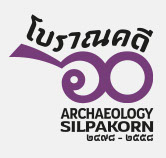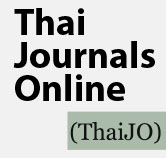
จากวรรณคดีสู่อุปรากร : Carmen
FROM LITERATURE TO OPERA : CARMEN
โดย สดชื่น ชัยประสาธน์ / By Sodchuen Chaiprasathna
Damrong Journal, Vol 5, No.1, 2006
บทคัดย่อ:
ในประเทศฝรั่งเศสช่วงศตวรรษที่ 19 มีการคิดค้นและแรงบันดาลใจใหม่ๆในศิลปะ วรรณคดีเป็นแหล่งที่มาของแรงบันดาลใจสำคัญในการสร้างสรรค์อุปรากรม ซี่งเมื่อสร้างขึ้นมาแล้วกลับมาชื่อเสียงมากกว่าวรรณกรรมต้นแบบเสียอีก ดังเช่นกรณีอุปรากร เรื่อง คาร์เมน ของบิเซต์ ซึ่งได้รับแรงบันดาลใจจากเรื่องสั้นชื่อเดียวกันของเรื่องคาร์เมน บทความนี้มุ่งศึกษาลักษณะเฉพาะของวรรณกรรมและอุปรากรเรื่อง คาร์เมน และชี้ให้เห็นถึงกลวิธีการ “ปรับ” และ “ปรุง” วรรณกรรมสู่ศิลปะการแสดง จากการวิเคราะห์ปมเรื่อง โครงเรื่อง กลวิธีการเล่าเรื่อง และการสร้างตัวละคร แสดงให้เห็นได้ว่าผู้แต่งบทอุปรากร คือ แมยัคและอาเลวี เข้าใจดีว่าวรรณคดีและอุปรากรมีลักษณะเฉพาะมีข้อได้เปรียบ และมีข้อจำกัดที่แตกต่างกัน ทั้งแมยัคและอาเลวีสามารถจับความและตีความเรื่องเดิมได้ดีมาก สามารถปรับปรุง เปลี่ยนแปลง หรือเพิ่มเติม รายละเอียด และลำดับเหตุการณ์ตามความจำเป็นในการแสดง รวมทั้งแต่งบทร้องให้เข้ากับงานของคีตกวีด้วย ในทางกลับกันคีตกวีก็สามารถแต่งทำนองเพลงให้ไพเราะสอดคล้องกับเนื้อร้อง บทร้องและบทสนทนาได้อย่างสมบูรณ์ แม้จะมีบางส่วนที่จำเป็นต้องปรับบท ก็สามารถปรับโดยรักษาความหมายเดิมไว้ได้เป็นอย่างดี ที่อุปรากร คาร์เมน ประสบความสำเร็จระดับโลกเป็นผลเนื่องมาจากการที่ผู้เขียนและคีตกวีทำงานร่วมกันอย่างมีประสิทธิภาพ
ABSTRACT:
In France, during the 19th century literature became a great source of inspiration for new operas, which in turn, brought more fame to the literature than the original source itself. Georges Bizet’s famous opera Carmen was adapted from a short novel written by Prosper Mérimée. By studying the original form as a short novel, to its transformation into opera lyrics, and to the unique collaborative work between the opera lyricists and composer, this paper explores the distinctions between written literature and its counter form as a performing art. Analysis of plot structure, narration method and portrayal character in character in both forms indicates that there were specific demands from the unique nature of each form. It was necessary that the lyricists for Carmen (Henri Meilhac and Ludovic Halévy) had a thorough understanding of the uniqueness, advantages and limitations between a novel and a performing script. In addition to keeping the integrity of the original work, the lyricists needed to take the work of the music composer into consideration. Consequently, they needed to be flexible and be aware of how their lyrics would fit the melody, mood, and rhythm of the operatic composition. This paper also explores the composer’s contribution to the lyrics when it was necessary. Bizet proved that he could adapt or rewrite the lyrics to fit his composition without destroying the original meanings. The result of the genuinely collaborative efforts is this world-class masterpiece, Carmen.











